Nonetheless, ours is a relentless pursuit for the perfect dog. Some of us favor setters, while others like pointers or Brits. We comb the lists of field trial washouts to hopefully get a deal on a covert dog with a pedigree far more significant than we can afford. Maybe the washouts bump birds in a trial; others don’t score enough finds in the allocated time, but when they come available we are all ears. Sometimes we’re all check books, too.
Many of these dogs are irresistibly gorgeous. Setters with big chests, small hindquarters, and feathered tails and legs that are so handsome that when they lock up on a bird we nearly forget to shoot. Pointers with flat heads, sinewy legs, and whippy tails, chiseled with muscularity that would humble a competitive body builder. Both dogs come equipped with vascularity stemming from a high muscle to low fat ratio, and their legs pop high with every step. These dogs are reminiscent of a five-gated walking horse in a show or a Radio City Music Hall Rockette. In a cover, they are the personification of style, class, and grace.
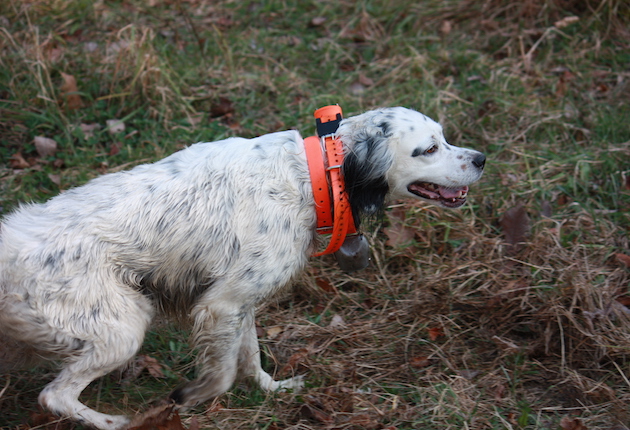
Ocracoke, a tri-color English setter of cover dog stock, is worn out in the heat of the early season grouse woods. Time to put her up.
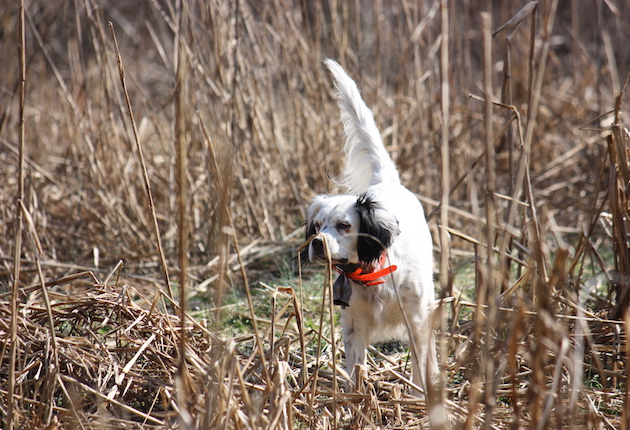
Late-season quail, particularly on a 40 degree morning, make dogs snap on point, particularly shaggy setters.
Thick terrain and hard work doesn’t always result in stunning points. It results in exhausted dogs and tired hunters, both of whom are slap wore out. Early season heat, late season snow and ice, and . . . age . . . run all of us down. But quitting is not in our vocabulary. It never was and never will be, and onward we go. In a hunt we push our limits just as far as we can go.
And that is where the Meat Dog comes into play. Meat Dogs don’t stop when they’re tired. Meat Dogs stop when they’re done.
The Meat Dog doesn’t look stunning 100 percent of the time. We have to be careful about them because these bird dogs hunt to the point of collapse. We’re cut from the same cloth, you and I, and that’s why they occupy such a special place in our hearts. Meat Dogs put birds in our vests.
Some of their points are convoluted. These usually come when a tired dog jumps over a log and winds game. They land and contort, all tangled up like students in a yoga class. Their heads are twisted and their legs are akimbo, so much so that the pup looks like he’s about to buckle. But they are frozen on point like a statue—not the kind you’d want as your memorial, but the kind that gets the job done. Inevitably there is a bird under its nose, and it’s one that flushes from the thick stuff into the wide open. Better make those cream puffs of a shot. The Meat Dog did his job; it’s time for us to do ours. The feathers in their mouths never tasted so sweet.
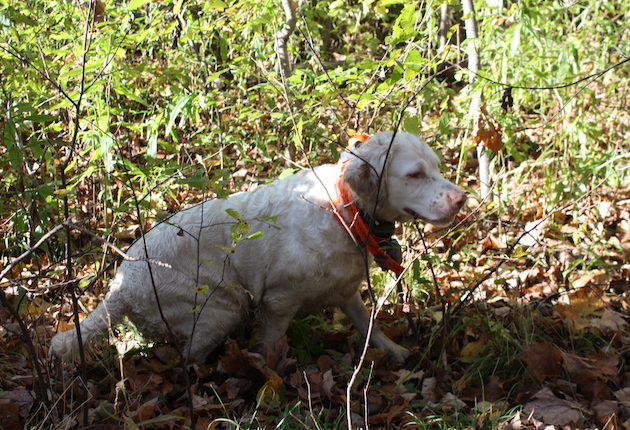
Rowdy, an orange belton cover dog setter, slams on a grouse point in a hot, dry, windless cover.
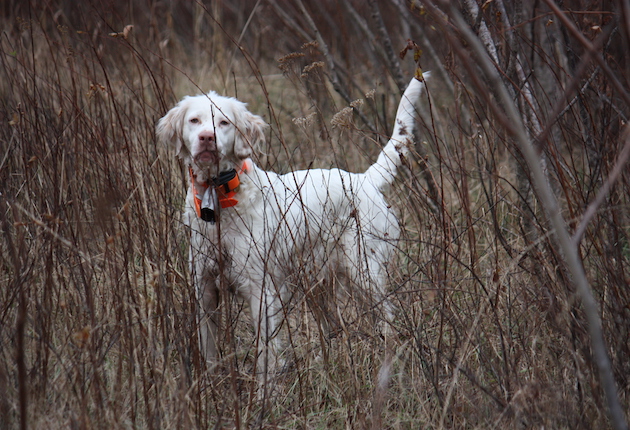
Cool temperatures and a good night’s rest rejuvenates all dogs, like Rowdy, an English setter.
Other times a Meat Dog slams on point so quickly and suddenly that his tail is maybe straight but usually down. I remember one winner was lying so low that I thought he was injured. But no, it was just an inglorious point, with chest on the ground and legs splayed like they were all broken. That winner had a bird pointed six inches from his nose. I killed that bird on the first shot, and more than any other bird of the day, I was glad I did.
Other times the dog crashes through the brush like a blitzing linebacker manhandles an offensive guard. There is no showboating followed by finger-tip catches and celebratory end zone dances. This is trench warfare, the kind that leaves blood and mud on a uniform.
One Meat Dog snapped, crackled, and popped his way through some dried Japanese knotweed that I was worried he’d get speared in like a Medieval Knight in a jousting competition. Sure enough, at the end of the patch were three birds all running from fright. My friend anchored a double.
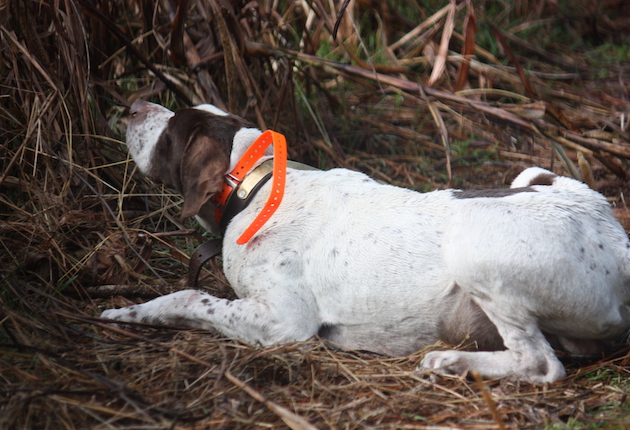
Ben, an Elhew pointer, doesn’t know when to quit. Sometimes we need to pull him off birds.
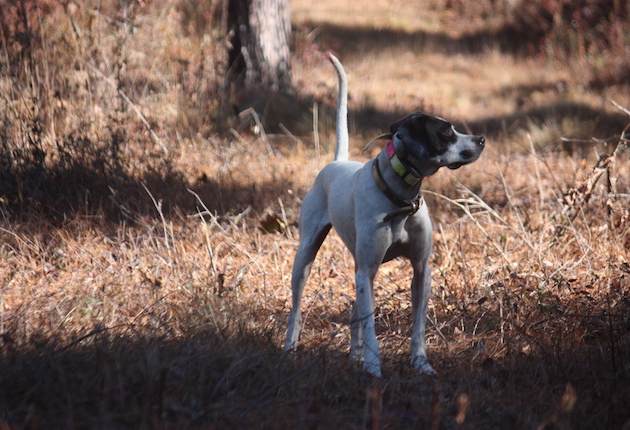
English pointers like Ben cut a fine figure when on point.
When the pointing is done for the day, a Meat Dog is covered in hitchhikers and thorns, has a bloody tip of the tail, and fresh scrapes that go along with healed scabs from last week. I patch them up, then give them an award. Theirs is not the kind that sits on a mantle, for trophies or ribbons don’t match their style. I give Meat Dogs a heaping portion of chicken mixed in with some chow. I pull cushions from the couch and put them next to the fireplace. Then I’ll let them rest, for tomorrow is another day. Meat Dogs are up before me, and before my feet hit the cold, morning floor I can already hear their tails thumping in the kennel. No question, Meat Dogs always want more.
All of my cuts and scars come from keeping pace with a Meat Dog. Any dog courageous enough to bust himself up to point a bird for me earns my respect. I’ve got ragged chaps and a tattered cotton shirt; they have abraded skin and hair thinned from casting in the jungle. Neither of us complains when we get cuts or abrasions, for in those battle scars we are united as one. And it is for their tireless and gritty hard work that I am forever grateful.
Zip Zap is a wonderful true-life story of a superb English setter and its litter-mates. On the heels of his highly-acclaimed novel Jenny Willow, Mike Gaddis reaches again into a half-century love affair with pointing dogs and upland birds to retrieve the true-life story of Zip Zap, his greatest English setter. Evocatively told and set against the plantation quail hunting and field trailing legacy of the Old South, here is a rich, powerful memoir, certain to gain favor with anyone who has shared the destiny of a once-in-a-lifetime dog. Buy Now

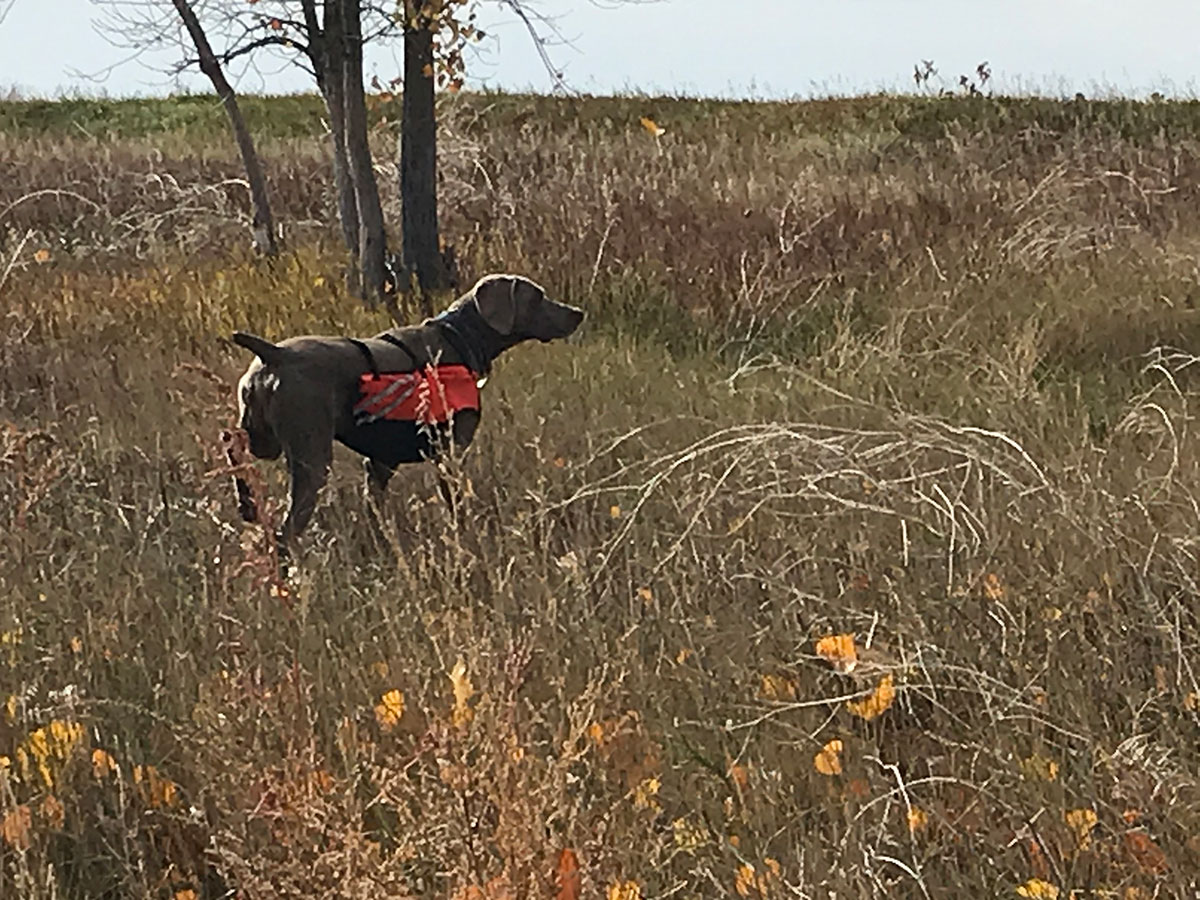
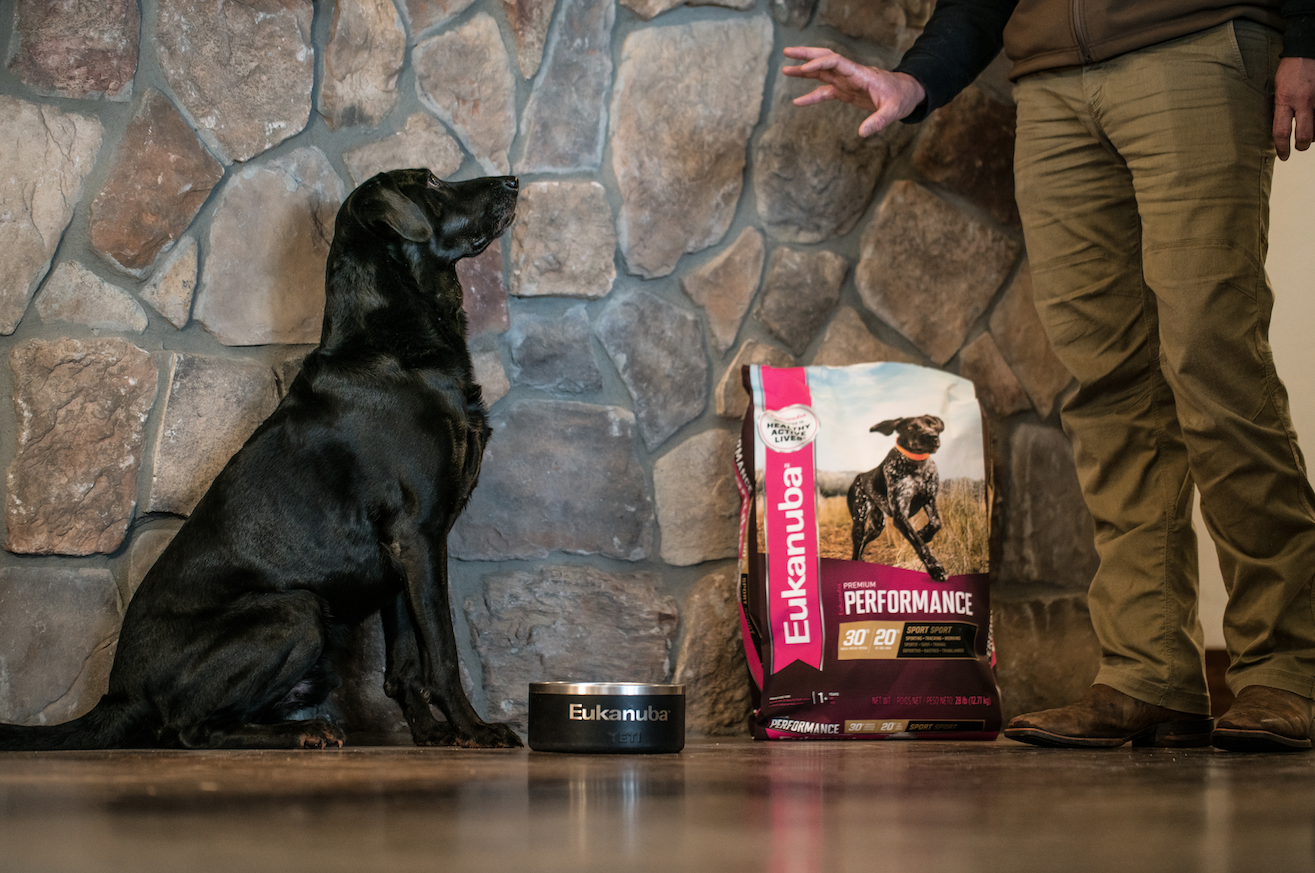

These are the only bird dogs I’ve ever had the pleasure of caring for. They have been this common man’s partner for chasing upland birds for the last sixty years. Well written Tom Keer. Love these dogs.
As realistic and honest as any written piece can get to real life! Great job extolling the virtues of 85-90% of the bird dogs out there,Tom.